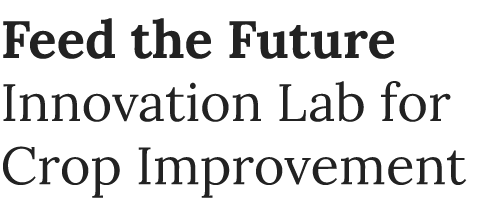When
- Annual meeting: Oct. 3rd-4th
- Field day: Oct. 5th
- Workshops: Oct. 5th-8th
Schedule
The meeting will consist of a mix of presentations, activities and training opportunities.
Note that team PIs are requested to be in Senegal by Saturday, Oct. 1st to allow for meeting time on Sunday, Oct. 2nd, prior to the start of the annual meeting itself.
Frequently Asked Questions
Who is participating?
Team PIs are responsible for deciding who will attend from their teams, and providing the ME with a list of participants and their travel dates and other relevant information. We encourage all project team PIs, Co-PIs and country leads to attend, and to invite project researchers / staff according to interest and relevance for the various workshops. This will be a great opportunity to meet face-to-face, and we hope and expect that teams will make full use of the meetings and workshops.
Who is responsible for expenses?
- Teams are expected to use their travel budget lines to pay for their airfare, visas (if needed), incidentals, and airport transfers outside of Senegal.
- The ME will cover hotel rooms and organized meals in Senegal through our hotel package, in conjunction with the meetings, and provide airport transfers between the hotel in Saly and the airport.
- Meals that are not organized by the ME, and any per diems, should be covered by the project teams themselves. Please be sure to not include covered meals when calculating per diems.
- We expect that since most travel has been limited due to Covid, teams should have sufficient budgetary capacity to cover their teams’ travel. If your team is concerned about travel funds, please reach out to Devon directly.
What are the entry, exit and visa requirements in Senegal?
- Visit the Embassy of Senegal in Washington, D.C., website for the most current visa information. Evidence of yellow-fever vaccination is required for entry into Senegal for travelers arriving from yellow-fever endemic countries, and strongly encouraged for all other travelers.
- For most participants visas will not be required; this includes citizens of the US, Costa Rica, Haiti, Burkina Faso, Niger, Togo, Nigeria, Uganda, Malawi, Kenya, India, and Italy. Citizens of Mozambique, Tanzania and Colombia will, however, need to get visas prior to departure. ILCI is keeping track of Senegalese entry requirements here. If your country isn’t listed, please contact Devon Jenkins (dlj67@cornell.edu).
- If you would like some additional information, we suggest reaching out to a reputable travel agent to confirm your visa requirements for Senegal, and checking this with the airline as well, although odds are both will be using Timatic as well. You can also check Timatic for yourself using their online travel center.
- For participants who do require a visa, the ME can arrange to provide invitation letters from the project and from our hosts at ISRA – please let us know as early as possible if you will need these.
- Please of course note that as with almost any international travel, your passport must be valid for at least six months from the date of entry, you’ll need to have a return air ticket, and you must satisfy Senegal’s health requirements (see below). If you show up in Dakar and are turned away because of not following this guidance we will not be able to help you.
What health regulations do participants need to know?
Vaccines
- Proof of Yellow Fever vaccination is required for entry into Senegal. See information below about Covid vaccine requirements.
- We recommend all travelers sign up with Global Haven and upload relevant vaccine documentation to make the health check faster when arriving, and prevent any complications.
- See guidance here.
- Note that when you receive a QR code, the “Provisional Vaccination Certificate” is sufficient for this trip. You will not be able to scan the QR Codes with your device, only designated Port Health and Airline officers with accounts on the system are able to do that.
- You should also keep your COVID-19 Vaccination booklets/cards with you. You do not need to upload your Yellow Fever Vaccination records to the platform; present them when you arrive at the airport.
Covid-19 information
- The US Embassy in Senegal has up-to-date, English-language information on Covid testing and vaccination requirements, and where / how to get tested while in Senegal, if needed.
- For entry into Senegal:
- Unless you are fully vaccinated, a negative PCR or RT-PCR test within 72 hours of departure is required for entry to Senegal.
- Vaccination proof that does not have a QR code may be rejected. All travelers are strongly encouraged to obtain a QR code before traveling by uploading proof of vaccination using Global Haven. See guidance here. Note that you will likely receive a ‘provisional’ certificate; this is perfectly fine for entry as far as we understand.
- If you are vaccinated but do not have a QR code to document it, you will need to provide qualifying proof of a recent negative Covid test (see above).
- Negative Covid test results are no longer required for re-entry into the US
- Proof of vaccination, however, is still required for entry into the US if you are a non-US citizen nonimmigrant.
- Please check with your government about re-entry testing or vaccination requirements prior to departure.
General regulations
- Please visit the US State Department website for details on other health concerns in Senegal, including malaria, tuberculosis, meningitis, and other diseases.
What should participants know about traveling to Senegal?
- Fly America Act: All participants leaving from the US will need to adhere to the Fly America Act, though this does not apply to participants traveling from elsewhere. Please see details here, and ask Tammy or Devon if you have any questions. You can also consult the recent operations office hours we had with our USAID representative.
- Saly is approximately 45 minutes by car from Blaise Diagne International Airport, Dakar’s new international airport, and 1.5 hours by car from the city of Dakar, Senegal’s economic and political capital, and largest city.
- This website can be helpful in finding all flights between two cities to see what days of the week are the best options for arriving in or departing from Dakar.
- Information on Senegal power outlets and voltage is available here. Please be sure that your device is rated to at least 230V to avoid damage or risk of fire.
- Senegal is a welcoming, friendly place for travelers, but please be conscientious of cultural norms, dress respectfully and modestly, and of course use normal caution and common sense to avoid robberies or pickpockets – as with almost any travel destination. Cultural information for travelers to Senegal is available here and here, and practical information is available here and here. Senegal is a predominantly Muslim country, and while alcohol is not heavily restricted, drunkenness is not acceptable. Drug laws are enforced with severe penalties. Senegal legally prohibits same-sex sexual activity, and public displays of romantic affection, regardless of sexual orientation, are culturally taboo.
- ATMs and credit cards are not widely available or used outside of Dakar and some major hubs, and there is a risk of robbery when using ATMs in public, so do so with caution. We recommend bringing and exchanging some cash to pay for incidentals. Senegal uses the West African Franc CFA, which is tied to the Euro. The exchange rate is approximately 650 CFA per US dollar; current rates can be found here.
- Climate: October in Senegal is generally dry and warm to hot, coming at the end of the single rainy season, with temperatures averaging 23°C / 77°F at night, and 31°C / 87°F in the daytime in both Saly and Dakar. Saly’s coastal location helps moderate temperatures, though September and October are the hottest months of the year. The ocean temperatures are warm this time of year. Plan to bring sunscreen as it may not be widely available.
Who should I contact with questions or emergencies in-country?
In the case of emergency in country, please contact:
ISRA/CERAAS
- ceraas@orange.sn
- BP 3320 Thies Escale • (Sènègal) www.ceraas.org
- Phone: +221 33 951 49 93 / 94
For general questions about Senegal or in-country logistics, please feel free to contact:
Mrs Mariama Senghor / Assistant, ISRA/CERAAS
- mariamasenghor123@yahoo.fr
- Mobile : +221 77 556 40 75
Mrs Kim FALL / Communications officer, ISRA/CERAAS
- njaykim22@gmail.com
- Mobile; +221 78 010 99 69
Ndjido Ardo KANE / Director, ISRA/CERAAS
- ndjido.kane@isra.sn
- Mobile: +221 77 723 20 19
For general questions about the 2022 meeting, please contact:
Devon Jenkins, ILCI program manager
Connect with meeting attendees in our WhatsApp group.



